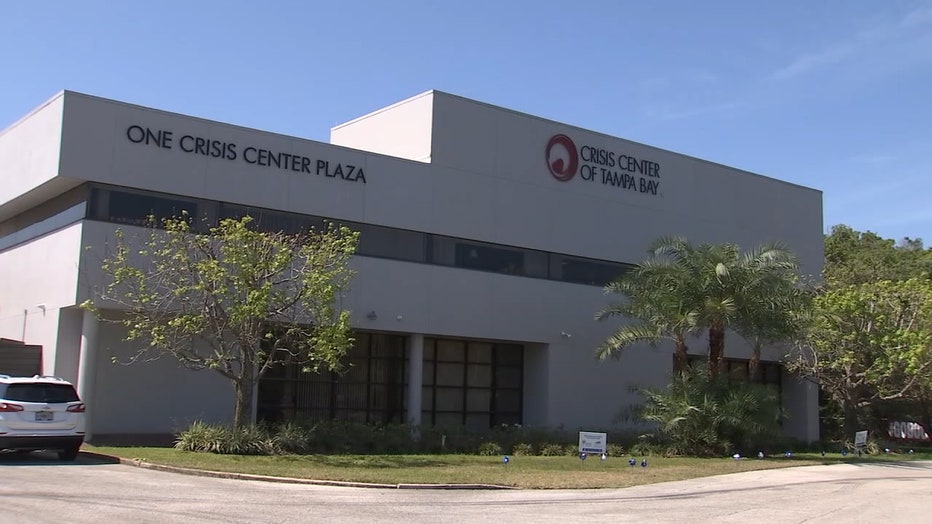‘It’s OK to not be OK’: During pandemic, more seek help with mental health
TAMPA, Fla. - Life has changed over the past year. We've masked up and practiced social distancing. Many of us worked from home, separated ourselves from loved ones, missed out on big events and experienced difficult losses. It's taken a big toll mentally and emotionally.
"I absolutely believe COVID-19, this pandemic has been traumatic for pretty much everybody. Not just here in Tampa Bay but across our state and our country," said Clara Reynolds, the president and CEO of the Crisis Center of Tampa Bay.
They have seen an uptick in calls to their 211 center during the pandemic.
"We've definitely seen an increase in our call volume. About a quarter of the calls that we are getting now are still COVID-related. About a third of those are still struggling with emotional challenges and then a quarter of those are still struggling with economics," said Reynolds.
For some, the pandemic magnified their issues.
"We know that for individuals in the past who have struggled with behavioral health issues, particularly anxiety and depression, this has exacerbated the condition for them," said Reynolds.

Crisis Center of Tampa Bay
READ: Survey: 1 in 4 workers plans to switch jobs, post-pandemic
Others were figuring out how to cope with something they had never felt before.
"You were hearing from people for the first time saying, ‘Now I get it. Now I understand when people talk about anxiety,’" Reynolds explained. "When they talk about depression, I get what they're talking about and it's real. So, if there's any positive that has come out of this COVID pandemic it is this sense that across the region and across the country that people are acknowledging that behavioral health is real and that people need treatment and that people need help and support when they are struggling with these behavioral issues."
MORE: Gov. Ron DeSantis announces $23 million for Florida's mental health programs
But while resources and conversations grow around treatment for mental health, there are many who continue to mask their feelings.
"There's still absolutely a huge stigma and we saw it in our callers. You know, people may have been sympathetic around behavioral health issues, but until you deal with it yourself, it's very difficult to have empathy around it and I think we're finally moving into that space where individuals recognize that behavioral health challenges are real and they're not just made up," Reynolds said. "It's not just attention-seeking. It's not just manipulative experience that it is truly an actual real condition and that getting help is not only OK, but important."
Anyone in need of help can call the Crisis Center of Tampa Bay's 211 call center at any time. For COVID-19 emotional support you can call 1-844-MyFLHLP.
For more information about the Crisis Center of Tampa Bay, head over to their website.

